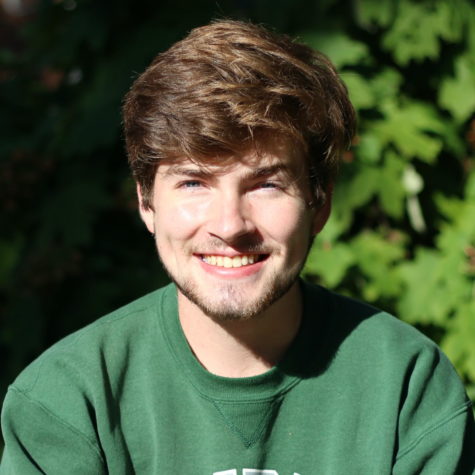Announcement of Thinkers kickstarts strategic planning
February 1, 2019
On Jan. 24 Provost Ben Vinson III released the names of the faculty and staff selected to participate in Case Western Reserve University’s strategic planning initiative. Called Thinkers, these individuals were chosen out of 150 candidates who either applied or were nominated for the position. Thinkers plan to begin their work this month and continue until May 31.
Thinkers are the centerpiece of the university’s new approach to strategic planning and will participate in intimate conversations with the provost, initiate dialogue with the campus community and make the final recommendations about areas where the university can expand or explore.
The idea for the Thinkers program grew from conversations between Vinson and students, faculty and staff and from widespread participation in online surveys.
According to Vinson, “I became [convinced] that a traditional strategic planning process risked missing the exceptional opportunity that this level of engagement and energy represented. After discussions with deans and other members of my leadership team, as well as others across the university, we decided to pursue this new approach.”
CWRU’s new approach to strategic planning differs from past tactics. Traditionally, the university’s strategic planning involved developing specific goals, objectives and action plans for a five-year period. This approach to strategic planning has always been imperfect because plans often have to change due to unforeseen circumstances and opportunities. Instead, with this new type of strategic planning, the Thinkers will look at the university’s impact from multiple perspectives to help draft a short, flexible document that identifies directions for CWRU to grow and guides campus decision-making.
Kathryn Lavelle, a professor in the department of political science, was selected as a Thinker. Lavelle was nominated without applying, although she had an interest in doing so.
“The program attracted me because it challenged me to have some ideas in order to join the group,” said Lavelle.
Lavelle also believes her background makes her especially well suited to the responsibilities of a Thinker.
“I have experienced [CWRU] from many angles over my life going back to my own high school days,” Lavelle explained.
Lavelle began working at CWRU in 2001, after being exposed to the university through meeting alumni in the Washington, D.C. area during her resident fellowship. In addition, her brother and sister-in-law graduated from CWRU. She is deeply invested in the campus community and wants students to have a great experience while at the university.
“My most frustrating moments,” according to Lavelle, “are when I have to tell a student that a course I am teaching is full, or that I have already taken on students to advise for capstones—and cannot help them that semester.”
Thus, one of the problems Lavelle hopes to address as a Thinker is the uneven allocation of resources to the university’s programs. However, she is also keeping an open mind about the other areas where CWRU needs to grow and change and stresses that bettering the university involves cooperation from faculty, staff and students.


